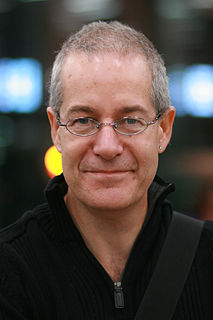A Quote by Thomas Sowell
The march of science and technology does not imply growing intellectual complexity in the lives of most people. It often means the opposite.
Related Quotes
The growing complexity of science, technology, and organization does not imply either a growing knowledge or a growing need for knowledge in the general population. On the contrary, the increasingly complex processes tend to lead to increasingly simple and easily understood products. The genius of mass production is precisely in its making more products more accessible, both economically and intellectually to more people.
Technologists provide tools that can improve people's lives. But I want to be clear that I don't think technology by itself improves people's lives, since often I'm criticized for being too pro-technology. Unless there's commensurate ethical and moral improvements to go along with it, it's for naught.
We are living in a society that is totally dependent on science and high technology, and yet most of us are effectively alienated and excluded from its workings, from the values of science, the methods of science, and the language of science. A good place to start would be for as many of us as possible to begin to understand the decision-making and the basis for those decisions, and to act independently and not be manipulated into thinking one thing or another, but to learn how to think. That's what science does.
Technology is incredibly powerful. And in many ways, the sky is the limit in terms of what you can actually accomplish with the right science and the right technology. But to get there, you have to actually invest in R&D. And often that means you have to be willing to spend an awful lot in that R&D phase before you see the benefits.
Given the power and influence that science increasingly has in our daily lives, it is important that we as citizens of an open and democratic society learn to separate good science from bunk. This is not just a matter of intellectual curiosity, as it affects where large portions of our tax money go, and in some cases even whether people’s lives are lost as a result of nonsense.
We ought to be keeping in mind that the technology is not just hardware and machinery, it is also software. So you can think of languages of the technology and writing of the technology and the social justice of the technology in what social justice does is reduce impacts on the Earth because the most impact is from the poorest and richest people.



































